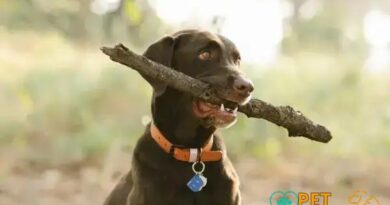What is Quirk
What is Quirk in Dog Behavior?
Quirk refers to the unique and often peculiar behaviors exhibited by dogs that distinguish them from one another. These quirks can manifest in various forms, from unusual barking patterns to specific ways of playing or interacting with their owners. Understanding these quirks is essential for dog owners who wish to foster a deeper bond with their pets and cater to their individual needs.
Common Quirks in Dogs
Dogs can display a myriad of quirks, each reflecting their personality and experiences. Some common examples include a dog that spins in circles before lying down, one that chases its tail, or another that has a peculiar way of greeting its owner. These behaviors can be endearing and often provide insight into a dog’s emotional state or past experiences, making them an important aspect of canine behavior to observe.
The Importance of Recognizing Quirks
Recognizing and understanding a dog’s quirks can significantly enhance the relationship between the pet and its owner. By paying attention to these unique behaviors, owners can better respond to their dog’s needs, whether it be through providing comfort during anxious moments or engaging in play that aligns with their dog’s preferred style. This awareness can lead to a happier and healthier pet.
Quirks and Breed Characteristics
Different dog breeds are known for specific quirks that are often tied to their genetic makeup and historical roles. For instance, herding breeds may exhibit quirks related to their instinctual drive to herd, such as nipping at heels or chasing after moving objects. Understanding these breed-specific quirks can help owners manage their dogs’ behaviors more effectively and provide appropriate outlets for their instincts.
How Quirks Develop Over Time
Quirks can develop as a result of various factors, including a dog’s environment, socialization experiences, and individual personality traits. A dog that has been exposed to a wide range of stimuli may develop unique responses to those experiences, leading to quirky behaviors. Additionally, certain quirks may emerge as a dog matures, reflecting changes in their physical or emotional state.
Addressing Unwanted Quirks
While many quirks are harmless and even charming, some can become problematic if they lead to destructive behavior or anxiety. It is crucial for dog owners to identify these unwanted quirks and address them through positive reinforcement training, behavioral modification techniques, or seeking professional help from a dog trainer or behaviorist. This proactive approach can help ensure that both the dog and owner enjoy a harmonious relationship.
Quirks as a Form of Communication
Dogs often use their quirks as a means of communication, expressing their feelings, desires, or discomfort. For example, a dog that barks excessively may be trying to alert its owner to something unusual or may be seeking attention. Understanding these communicative quirks can help owners respond appropriately and strengthen their bond with their pets.
The Role of Quirks in Dog Training
Incorporating a dog’s quirks into training can enhance the learning experience for both the dog and the owner. By recognizing and utilizing these unique behaviors, trainers can create more engaging and effective training sessions. For instance, if a dog has a quirky way of playing fetch, incorporating that behavior into training can make the process more enjoyable and rewarding for the dog.
Celebrating Your Dog’s Quirks
Ultimately, quirks are what make each dog unique and special. Embracing these idiosyncrasies not only enriches the owner-dog relationship but also adds joy to everyday interactions. By celebrating their dog’s quirks, owners can foster a loving and accepting environment that allows their pets to thrive and express themselves freely.



